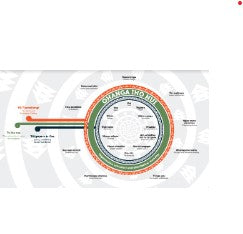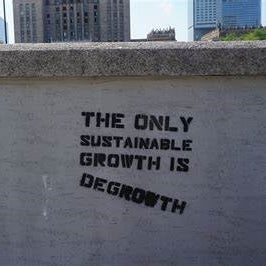I am writing this with a swollen head after being stung by a bee in Ethiopia, following the most magnificent conference I’ve attended in my life – the Social Enterprise World Forum (#SEWF2019). You win some – you lose some.
The ReCreators is almost a year old.
I have recently been working more with Social Enterprise Auckland because I want to enable other owners of environmental and social businesses. The ReCreators first anniversary and SEWF have allowed me to evaluate my first year and provide some insights into how to survive the first twelve months in social enterprise and plan for year two.

What drew me to this niche?
The short answer is because I want to help people and planet within the practical realities of running a business to earn an income. Having spent most of my life working for governments, where a guaranteed income is a given, I have been accustomed to earning a living helping others. But in the space of setting up a business from scratch, a steady income is much HARDER to come by!!
With funding being more and more limited, there is a growing desire from people working in the NGO sector to earn a living through business, rather than by donation. I personally have a love for economics – circular, social, environmental - and I know that monetising good business is possible, if you have the mindset for it.
The Imposter Syndrome
This is probably the first and somewhat biggest hurdle. No doubt your friends and family will be like “WHAAAAAT” – you’ve left a well-paid job to do what?! And it feels like that for quite a few months, while you are investigating the business model that will attract a paying audience while helping people at the same time. I’ve often said that you need to have the skin of a rhinoceros, because you just need to ignore what people think or how they look at you and just carry on with your mission.
The Business Model
Designing a business model that will help people and planet requires a lot of brain power to work out the logistics. This is where social and environmental enterprises differ from the norm and why they need to charge more, or possibly ask for funding, when they start. If you are sourcing from local, small, vulnerable suppliers, it’s going to cost more. The quality is the same, but the carbon footprint is less and social outcomes are greater.
Paying for the Multiplier Effect
The multiplier effect is a chain reaction that starts when good business is created, and people buy from it. Local businesses thrive and life is improved for those around them. Social entrepreneurs often pass on their good business to others, and so the chain reaction begins. Equally, when we buy cheap nasty stuff, there is a negative multiplier effect – for human rights, pollution and carbon footprint, to name a few.

Ignore Detractors
When I first had my idea for The ReCreators, I received some negative comments around the possible failure of my venture, which was specifically aimed at the products. To some degree, they were correct. Except, it’s not just about the product, it’s more about the person behind them. In this last week at the SEWF, I saw a level of determination that I have never seen before. Nearly everyone who spoke about their social enterprise had a deep sense of determination, conviction and a willingness to make a business work – no matter what. Many had no business acumen but a vision about what they wanted to achieve. Most talked of failures and retries – about the difficulties and struggles they faced. But when you finish an evening thinking negatively, you have the freedom and choice to wake up the following morning with a revitalised outlook for making your impactful business work. Expect to fail and work on picking yourself up and moving on.
Pivot. Pivot. Pivot.
Most entrepreneurs have an initial vision for their business. But, after a year or more, the business model can end up looking quite different, but still deliver the same or similar impact. I can attest to this. My initial vision was about upcycled products, but I have ended up with workshops and events.
However, I still promote upcycling as my brand and I still support people, albeit in a slightly different way. The ReCreators growth will also allow us to pivot back to the original product idea in time (which is built on the circular economy model) with our developing loyal audience and client base who know, like and trust what we do.
Allow yourself to be flexible in how you deliver you business, adjust and play with ideas. Think of yourself as a business scientist – practicing with different formulas until you hit the jackpot. Then replicate and scale.
Funding
This has been the biggest thought provoker for me. For profit, not-for-profit, or charity? In a world full of inequity and inequality, I see the share market exacerbating the situation. Those who can invest in business represent the top echelons of society and they get to choose which business to invest in. They say that they lose, but in a world filled with vast business choices, I’d say the risk is minimal otherwise we wouldn’t be in our current situation. To sell shares to those who may clip the ticket (equity investments) indefinitely, having done very little work, doesn’t sit well with me, although I do like the idea of people buying services/products in advance.
A Slow Sustainable Business
A friend of mine recently suggested that I listen to the founder of Patagonia, Yvon Chouinard. What he says rang true to me in every way: think about the sustainability and circularity of your products, treat your people well and grow a business slowly that will last for 100 years; grow slowly and organically so that control remains within the company for the people who work there. Rather than sinking too many dollars into The ReCreators, it has required a huge investment of my time. But it has paid off now that we are growing, because I can now invest in more assets to teach more classes or create more work around the circular economy model.

One Year Down
A year in, The ReCreators has approximately ten up-cyclers/ artists who are committed to the movement while earning a living from it. I often joke with them that they have a hard job – researching Pinterest and practising new craft ideas then teaching them to families. It brings a warm glow to my heart being in class and seeing what our participants make. Even more warming when someone sends photos on WhatsApp.
We are now working with Auckland Council in many West Auckland community centres, teaching adults and kids the joys of upcycling. We can discuss lots of issues like the environment, the mental well-being that comes from crafting, as well as a positive solution to our waste and consumerism problems. We host events for businesses to attract communities, too, such as Halloween games, Christmas gift making and anything else where you want to attract people. Upcycling crafting is enjoyed by all ages, genders, ethnicities – it’s inclusive, fun, green and good for the soul.
Very much looking forward to Year 2!
Arohanui from me and the team,
Ger.
Leave a comment (all fields required)
Comments will be approved before showing up.

